All cancerous and non-cancerous abnormal growth of cells is collectively known as a brain tumor. They include some lesions found in the spinal cord as well.
These are mainly originated in the brain or maybe spread through connective tissue like blood or lymph. Symptoms mainly increasing headaches, blurry vision, loss of balance, confusion, and seizures. there are few cases of the asymptomatic tumours as well.
Treatment of brain tumor includes surgical removal of the cancerous part, either by microsurgery or craniotomy.
Post-surgery if some tissues are left then radiation therapy, chemotherapy or a combination of both is given strategically to clear out the cancer cells and prevent its reoccurrence.
Post-treatment palliative care is required for the management of symptoms and brain functioning.
The Cost of a Brain Tumor Includes:
Preoperative diagnostic tests cost, which may include [CT Scan or MRI]
Surgery cost (Depends upon the type and size of the tumor and the extent to which the tumor has spread)
Post-Operative cost (there might be a need for Chemotherapy or Radiotherapy before or post-surgery)
Medicines
Patient's hospital stay
Note - The patient will be required to visit the surgeon a week after the surgery to assess and remove any staples or stitches.
The overall cost of the procedure also varies based on the patient's condition and preferences. Some of these factors are:
Type of hospital and room opted (General, Twin sharing or single room)
The stage and type of cancer
Patients may require repeated investigation through PET CT and related tests Post-surgery / Chemotherapy / Radiation Therapy.
Any additional tests may be required, such as ECG or blood tests.
An extended stay at the Hospital (Generally, the stay is around 3-10 days)
Cost of Accommodation during follow-ups, in case the patient is not a local resident [may take longer duration in case of chemotherapy or radiotherapy sessions]
A day or two before the surgery, a special MRI or CT scan which is known as WAND MRI or CT, is taken. Apart from this, blood tests, an ECG, a breathing test, and an echocardiogram are also done. All these test costs are covered in the package.
Yes, the pharmacy and medicine cost is included in the package when the patient stays in the hospital. Any medicines taken from outside the hospital will not be covered in the package.
Every patient takes a different amount of time to recover, and the hospital stay will depend on their situation. Generally, the stay after the surgery is around 3-10 days. An MRI or CT scan is performed a day after the surgery to identify the treatment's success. The patient should visit the surgeon one week after the surgery for assessment and removal of any staples or stitches. For high-grade tumors, follow-up visits are scheduled every 3-6 months for the first 5 years and then once a year.
Popular Cities in South Korea for Brain Tumor Treatment are:
The right doctor for treating a case of brain tumor is a neurologist, neurosurgeon, head and neck surgeon, and Oncologist.
Listing popular specialists:
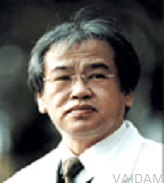
Chief, 25 years of experience

Chronic pain Intractable pain
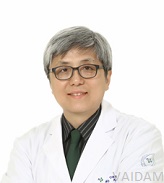
Consultant, 30 years of experience

Gamma Knife radiosurgery, Aneurysm, Haemorrhage
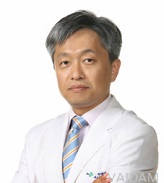
Professor, 30 years of experience

Pain Neurosurgery, Spinal Neurosurgery, Spine Trauma Surgery, Microinvasive Spine Surgery, Spinal tumors, Cervical spine surgery
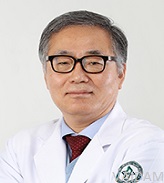
Professor, 25 years of experience

Hemorrhage, Thrombosis, Wide-necked Intracranial aneurysm

Professor, 25 years of experience

Neurotraumatology, Cerebrovascular neurosurgery
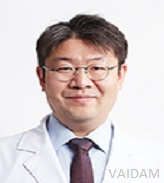
Associate Professor, 25 years of experience

Facial spasm, Trigeminal neuropathy, Intracranial hemorrhage
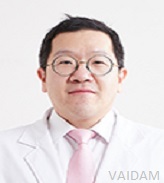
Associate Professor, 25 years of experience

Neurotrauma, Cerebrovascular surgery
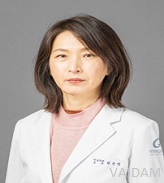
Professor, 25 years of experience

Tremor Radiosurgery Stroke Headache Dizziness

Professor, 25 years of experience

Benign brain tumors (microscopic microsurgery, endoscopic surgery and radiosurgery of vestibular schwannoma, pituitary tumor, meningioma, etc.) Primary malignant brain tumor Microscopic microsurgery and radiosurgery of metastatic brain tumor Microscopic microsurgery of skull base diseases Facial spasm Microvascular decompression surgery of trigeminal neuralgia
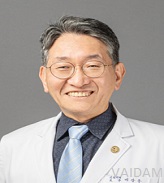
Professor, 20 years of experience

Spinal diseases Spinal tumors Cervical diseases Head trauma Minimally-invasive spine surgery
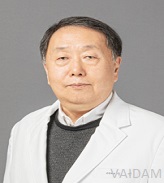
Director, 35 years of experience

Parkinson's disease Headache Tremor
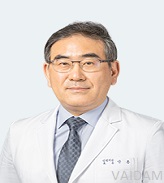
Vice President, 25 years of experience

Lumbar disc Neck disc Spinal canal stenosis Lumbar foraminotomy
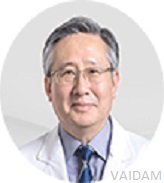
Professor, 25 years of experience

Cerebral hemorrhage Cerebral aneurysm Cerebral infarction Moyamoya disease Arteriovenous malformation
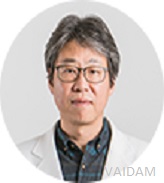
Professor, 22 years of experience

Cerebral aneurysm Cerebral hemorrhage Cerebral infarction Cerebral arteriovenous malformation Carotid stenosis Microscopic surgery for cerebrovascular disease Endovascular surgery Embolization

Professor, 20 years of experience

Trigeminal neuralgia Medulloblastoma

Professor, 30 years of experience

Cerebrovascular Malformation Moyamoya Disease Cyber Knife
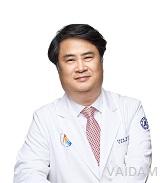
Professor, 20 years of experience

Laminoplasty, Cerebrovascular disease, Hemifacial spasm, Hematoma

Professor, 20 years of experience

Lumbar disc Scoliosis Osteoporosis compression fracture Neck disc Lateral sclerosis Spinal tumor
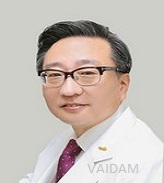
Professor, 33 years of experience

Skull base tumour Head trauma Cerebrovascular disease

Associate Professor, 23 years of experience

Functional brain disease Neuralgia Cerebrovascular disease
In terms of five-year survival rate, the percentage of people who lives more than five years is 36%, and in the case of 10 year-survival rate, It is 31%. there are few cancers of the brain which are slow-growing and don't really need intervention throughout life.
Our Services for Brain Tumor Treatment in South Korea
Transparent - Professional - Without Hassles
Craniotomy is the most common type of surgery to remove brain tumor. In this procedure an incision is being made in the scalp and bone pieces are being removed from the skull. After wards the tumor is being excised.
Yes, brain tumor surgery is risky, it always carries some risks such as infection and bleeding. Some other risk of the procedure depends on the part where your brain tumor is located.
Yes, brain tumor can be successfully removed with surgery and do not grow back. It also depends on some factors such as if the surgeon is safely able to remove all of the tumor. If some tumor is being left it can be treated with radiotherapy.
Yes, brain tumour surgery is successful some people are able to recover easily after brain surgery while some people may have long term difficulties. The problem also depends on the area where brain tumor was located.
Brain tumors are very serious they can put some pressure on some healthy part of the brain or spreads to those areas. They causes some problem in backflow of fluid around the brain which can result in increase in pressure inside the skull.
It will take around three to five hours to perform craniotomy but if you are undergoing awake craniotomy it will take around 5-7 years.
Brain tumour surgery is being done by a neurosurgeon under general anaesthesia. The complete procedure can take up to three to five hours if you are undergoing regular craniotomy.
Brain Tumour surgery is being done by following methods:
Usually hospital stay after brain tumor surgery is two to five days. An MRI or CT scan will be performed the day after surgery to benchmark the success of the treatment. The exact length of stay depends on many factors, such as the type of surgery performed and whether there were any complications that require further treatment.
Pain is very minimum after surgery, you may have some headache and tenderness in the area affected. Some medicines are given for pain relief, you will be given medicines intravenously till you are not able to take pills.
If you experiencing any of the symptoms such as fever more than 101, weakness in arms or legs, change of mental status, any seizure, worsening headache, increased swelling/ redness at the incision site.






NABH Certified Healthcare Discovery Platform
Vaidam is NABH certified healthcare discovery platform that will connect you to top-notch medical experts, hospitals, wellness options, and trusted travel partners to help identify and make the right healthcare choices.

Researched & Personalized Treatment Plan - Under One Roof
You can search for the best hospitals, read about them, view photographs of the facilities at the hospitals and the places at which the hospitals are located, and check the cost of treatment.

Quality Treatment Within Your Budget
As soon as you post an enquiry, the patient relation team will collect details from you, share them with the doctors and hospitals on Vaidam's panel, and get a personalized treatment plan. We research to get quality treatment within your budget.

Treatment to Travel
Vaidam concierge assists patients, to get medical Visa, the best airline fares and arrangements for your stay. Our concierge also helps you with daily travel, language, and food concerns. Vaidam does everything to be your perfect host. All of Vaidam’s services are free of cost to patients.

International Reach
Vaidam Health has network in 15+ countries, which includes India, Turkey, UAE, Germany, South Korea, Thailand, Malaysia, Spain.
Note: Vaidam Health does not provide medical advice, diagnosis or treatment. The services and information offered on www.vaidam.com are intended solely for informational purposes and cannot replace the professional consultation or treatment by a physician. Vaidam Health discourages copying, cloning of its webpages and its content and it will follow the legal procedures to protect its intellectual property